- Преподавателю
- Иностранные языки
- План урока по английскому языку по теме «Уэльс» с использованием основных принципов коммуникативной методики обучения английскому языку (на основе курса Британского Совета ТКТЕ) по учебнику О. В. Афанасьевой, И. В. Михеевой (6 класс)
План урока по английскому языку по теме «Уэльс» с использованием основных принципов коммуникативной методики обучения английскому языку (на основе курса Британского Совета ТКТЕ) по учебнику О. В. Афанасьевой, И. В. Михеевой (6 класс)
| Раздел | Иностранные языки |
| Класс | 6 класс |
| Тип | Конспекты |
| Автор | Боровикова Н.А. |
| Дата | 22.06.2015 |
| Формат | doc |
| Изображения | Есть |
План урока по английскому языку в 6 классе по теме «Уэльс» с использованием основных принципов
коммуникативной методики обучения английскому языку (на основе курса Британского Совета ТКТЕ)
по учебнику О. В. Афанасьевой, И. В. Михеевой для школ с углублённым изучением английского языка
LESSON PLAN
Level: Intermediate
Lesson length: 45 min
Number of students: 10
Main aim:
By the end of the lesson students will be able to speak about Wales, its capital and main cities, its geographical features and national language.
Subsidiary Aim(s):
Students will be able to read a short text for gist, for specific information. Students will be able to speak fluently about Wales and its features.
Personal Aim(s):
to increase Student Talking Time, to give clear instructions
Information about the class:
There are 10 students in the group. They are 13 years old. They have been learning English for 6 years. I have been teaching them since the first form. They have had English 5 times a week since then. They have been working together for all this time. This group really likes working and they always get involved in every activity. They are always eager to learn.
Materials/aids:
The main course-book by O. V. Afanasyeva, I. V. Miheeva "English. The VI Form. The Student's Book for schools with advanced English", Moscow "Prosveshcheniye", 2014
The map of the UK, the map of Wales
Pictures of the Welsh symbols and flag, Cardiff, Swansea, Newport, Snowdon
Handouts with reading tasks
Assumptions (What do the students already know/don't know or how will they behave at a particular stage of the lesson?
The students already know and can work with a map and describe the geographical position of any country using the necessary sets of words such as: in the north/northwest; to the south/south east of; to be situated; to be washed by; to border on.
The students can confuse the names of the capitals of the four parts of the UK. The map can help them to remember the name theml.
Timetable fit: (How does your lesson link to / build on other lessons?)
The lesson links to the previous lessons of the course-book.
Anticipated Problems
Solutions
-
Students may be unfamiliar with the new vocabulary.
-
Students may be familiar with the new vocabulary.
-
Students may have certain difficulties with pronunciation of the new words.
-
Students may be reluctant to work in pairs.
-
Use the PPP approach.
-
Elicit the words fast or skip the stage of presentation.
-
Drill the words in various contexts, come back to the most difficult ones at the end of the class.
-
Change interaction patterns. Be sensitive with pairing.
Language Analysis
Form/Written record
Meaning: how will you help Ss to understand new target language? (Context, story, definition, picture, etc.)
Concept Checking Questions (CCQs)
Phonology Word stress/
transcription
Anticipated problems
Solutions
1. The Celtic language (adj)
The language of the Celts, the ancient group of people who were living in Britain before the arrival of the Romans.
CCQ - Is it an ancient language spoken by the people who looked like Vikings? Yes.
/ˈkeltɪk/
sometimes /ˈseltɪk/
SS may not understand who the Celts were.
Show the picture of the Celts.
2. Gaelic (adj)
Any of the Celtic languages spoken by the Irish.
CCQ - Is it one of the ancient languages spoken by the people who lived in Ireland? Yes.
/ˈɡeɪlɪk/
SS may have difficulties with pronunciation.
Drill the right pronunciation.
3. Fluent (adj)
About the speech, writing, etc. expressed readily and without pause, spoken well and without difficulty.
CCQ - If I speak without making a pause and quickly can you say I speak fluent English? Yes.
/ˈfluːənt/
SS may have certain difficulties with the word order.
Drill the word order model: adj + noun.
4. Argue (v) (with, over, about)
To express disagreement in words, often with strong feeling, quarrel.
CCQ - If people have different opinions of smth and it can lead to a serious quarrel, can we say that they argue? Yes.
/ˈɑː(r)ɡju/
SS may have difficulties with the use of prepositions after the verb.
Drill the right prepositions.
5. Rescue (v)
An act of saving or setting free from harm, danger or loss.
CCQ - Does it mean to save someone from a dangerous or unpleasant situation? Yes.
/ˈreskjuː/
SS may have difficulties with pronunciation.
Drill the right pronunciation.
6. Brief (adj)
Short, esp. in time.
CCQ - Does it last for a short time? Yes. Can it be long and boring? No.
/briːf/
SS may have difficulties with pronunciation.
Drill the right pronunciation.
Skills analysis
Skill/ subskill
Tasks for skills development
Preparing learners for tasks
Anticipated problems
Speaking - fluency language
Learners talk about their experience connected with travelling, about the features of Wales.
Prepare pictures, the text to the topic of the lesson.
SS might not understand each other in the discussion.
Solution: Remind learners to ask their partners to repeat things they don't understand.
Reading for details
Set 5 detailed questions.
Create interest in the topic of the text. Vocabulary will be taught before reading.
SS might not want to find detailed answers to the given questions.
Solution: To remind SS that more information they find in the text to the given questions the easier they will complete future tasks during the lesson.
Reading for general understanding
Choose the best title for the text.
SS make a complete text putting their text pieces together.
SS might have difficulties with the main idea of the text.
Solution: To help SS to distinguish the main idea of the text.
Stage
Stage Aims
Procedure
Time
Inter. pat-n
-
Warmer
-
Lead-in
-
Skills. Speaking.
IV. Skills. Reading and speaking.
V. HW
To warm the SS up.
To activate SS's schemata for the topic of the lesson and revise
the target
language from
the previous
classes.
To provide SS with ideas and initiate a discussion on the topic of the lesson.
To help SS out with the key words necessary for understanding the text.
To practice reading for details.
To let SS check their answers and boost their confidence.
To create a need for speaking for fluency.
To check answers.
To practice gist reading and give SS a chance to look at the complete text to clarify any details/ideas.
To practice speaking for fluency.
To revise the information about Wales.
To practise reading/
writing/
listening/
speaking skills.
SS answer the following questions:
-
Do you like travelling?
-
Do you prefer to go to the same place or to new and unknown places?
-
Do you like to learn more about the new places?
-
Can I say that you find it rather interesting to explore a new place, to find out something connected with this or that place?
A question-based discussion
T asks SS to look at the map.
SS answer the following questions:
-
How many parts does the UK consist of?
-
What are they?
-
What is the United Kingdom of Great Britain and Northern Ireland washed by in the south/west and east?
-
Predicting
Focus on the map.
T divides the class into pairs and asks SS to answer the following questions:
-
What is the smallest part of the UK?
-
Where is it situated?
-
What other part of the UK does it border on in the west?
-
What are the main symbols of this part of the country?
-
What does its national flag look like?
Today we are going to be explorers of a new land for us. We are going to explore Wales.
-
Pre-teaching of the vocabulary
T informs SS that they are going to read a text about Wales and elicits the following key-words:
-
It is an ancient language spoken by the Celts who looked like Vikings and lived in Britain before the arrival of the Romans… The Celtic language
-
It is of the Celtic languages spoken by the Irish… Gaelic
-
If we hear somebody speaking very quickly, without any pauses and it takes him little time to begin speaking or writing, we call his speech or writing… Fluent
-
If we see people who disagree with each other, express their strong feelings and emotions in words and begin to quarrel, we can say that they… Argue
-
If somebody saves another person or other people from harm, danger or loss, we can say that somebody … Rescues
-
If a meeting is short in time, we call it… Brief
CCQs
-
Is it an ancient language spoken by the people who looked like Vikings? Yes.
-
Is it one of the ancient languages spoken by the people who lived in Ireland? Yes.
-
If I speak without making pause and quickly can you say I speak fluent English? Yes.
-
If people have different opinions of smth and it can lead to a serious quarrel, can we say that they argue? Yes.
-
Do people do it when somebody needs help? Yes.
-
Does it take a lot of time? No. Can be long and boring? No.
So the first word was… (write the six words on the blackboard)
3. Jigsaw reading
A) Reading for details
SS read cut-up pieces of the text, answer the questions that they can.
-
Peercheck
SS check their answers with their neighbours (who had the same text piece) in small groups.
C) Speaking/communication gap
SS share their answers in groups with the members who have different text pieces each.
D) Feedback
SS answer the questions in the open class.
4. Skimming
T asks SS to put their text pieces together to make a complete text (or distributes uncut copies of the text). Asks them to skim the text and choose the best headline in the same groups.
5. Post-reading discussion
T asks SS to imagine that one of your friends has got a letter from his/her Welsh friend inviting him/her to visit Wales. He/she is not sure that he/she would like to go. Prove that Wales is an interesting place to visit.
T asks SS to choose one of the five home tasks according to their likes and abilities.
-
Do Ex.20 p.59 in a written form.
SS have to find wrong information and correct it.
-
Watch a video and listen to the native speaker from Wales. Tell the class about the Welsh language.
-
Watch a video about the Welsh Mountain Rescue Service. Tell the class about their work.
-
Watch a video about the Welsh Mountain Rescue Service. Tell the class about the geographical features of Wales.
-
Imagine that you have got Ann's notes she made during the lecture by Mr Roger Davis. Tell the class about Welsh traditions and culture.
2 min
3 min
3 min
7 min
7 min
3 min
7 min
3 min
3 min
5 min
2 min
T-SS
T-S
T-SS
S-S
T-SS
T-SS
S
S-S
S-S-S
T-SS
S
SS-SS
SS-SS
T-SS
Boardwork (the board will look like this)
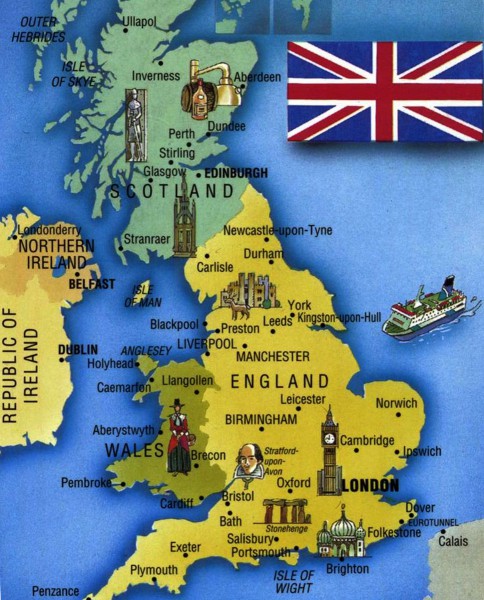
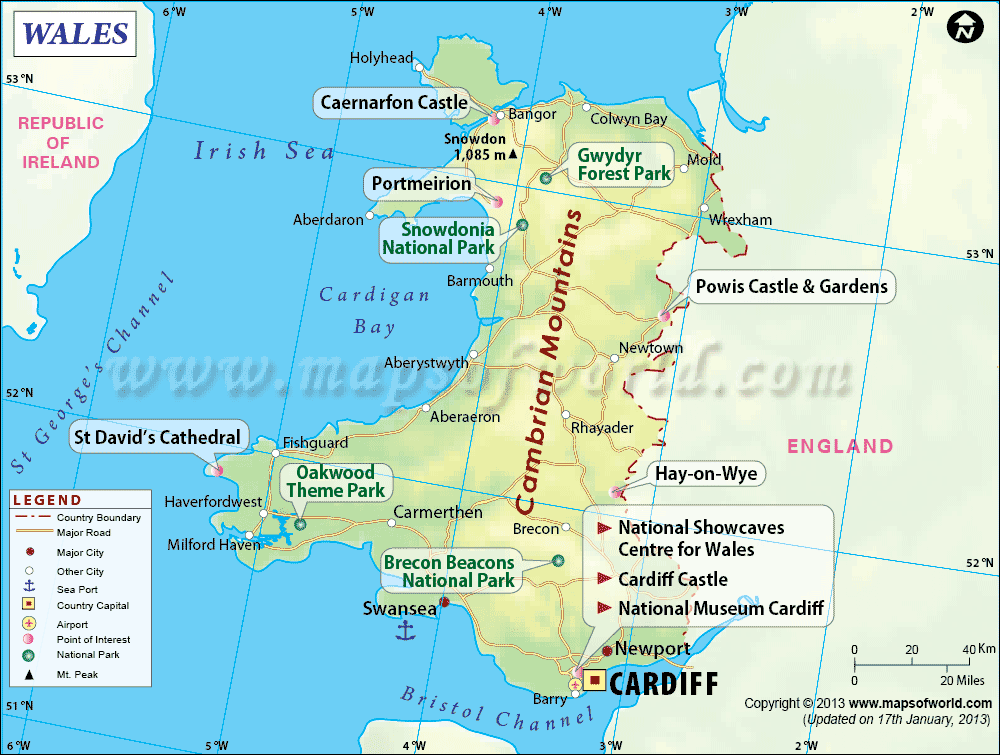


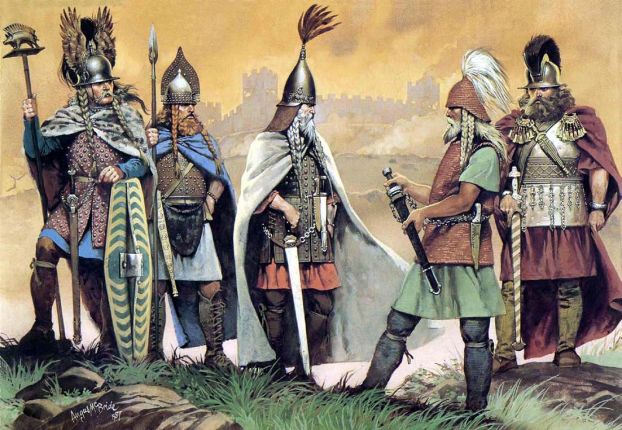
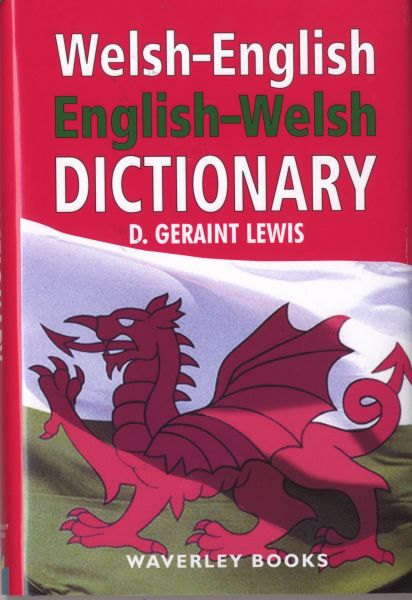


The Celtic language
Gaelic
Fluent
Argue
Rescue
Brief
Attachments
(pictures, supplementary worksheets, handouts, coursebook pages, presentations etc)
The main course-book by O. V. Afanasyeva, I. V. Miheeva "English. The VI Form. The Student's Book for schools with advanced English", Moscow "Prosveshcheniye", 2014
Unit 14 "Wales". Ex.12, 13 p. 53-55. Ex. 18 p. 56-58. Ex. 20, 22, 24 p. 59
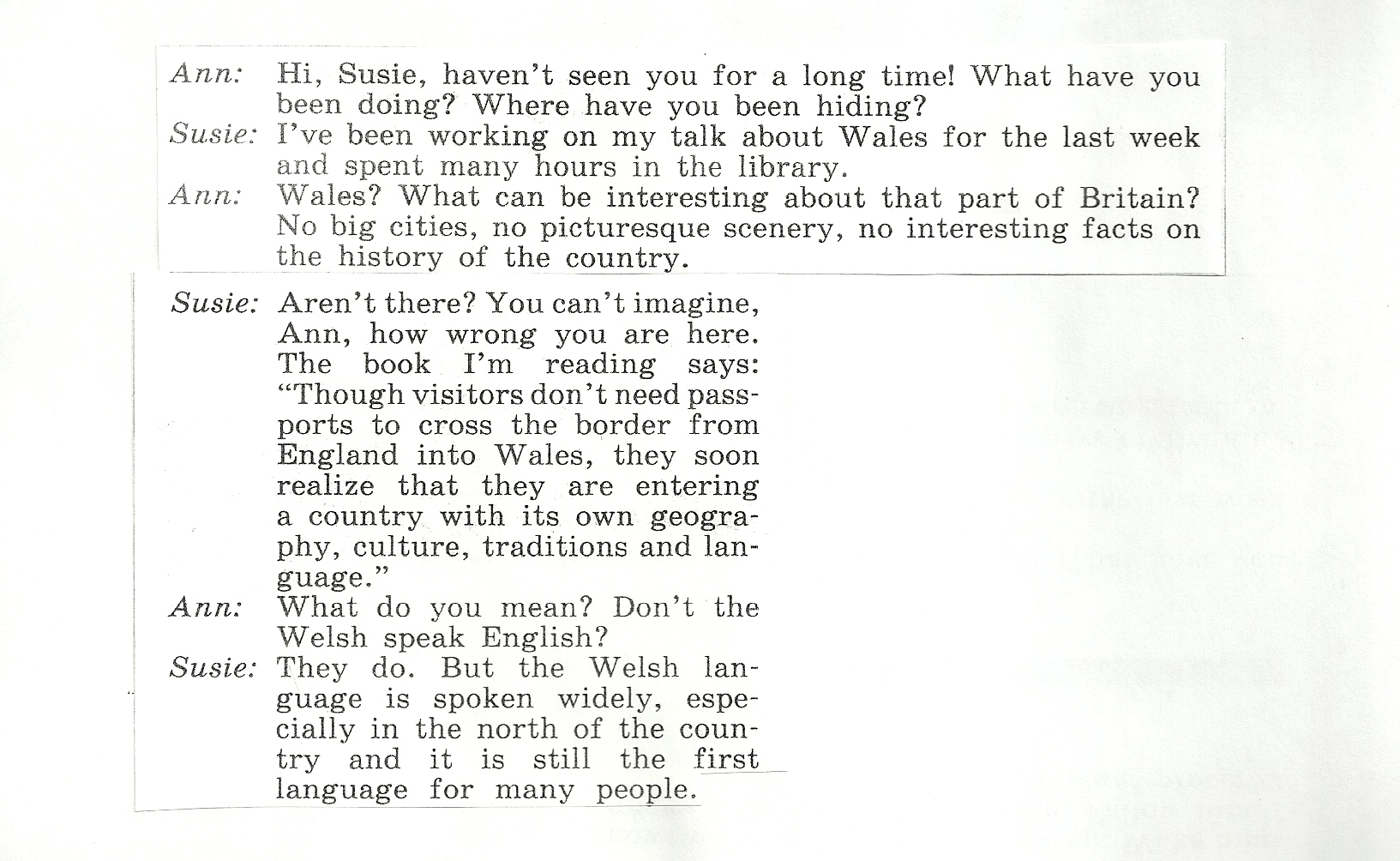
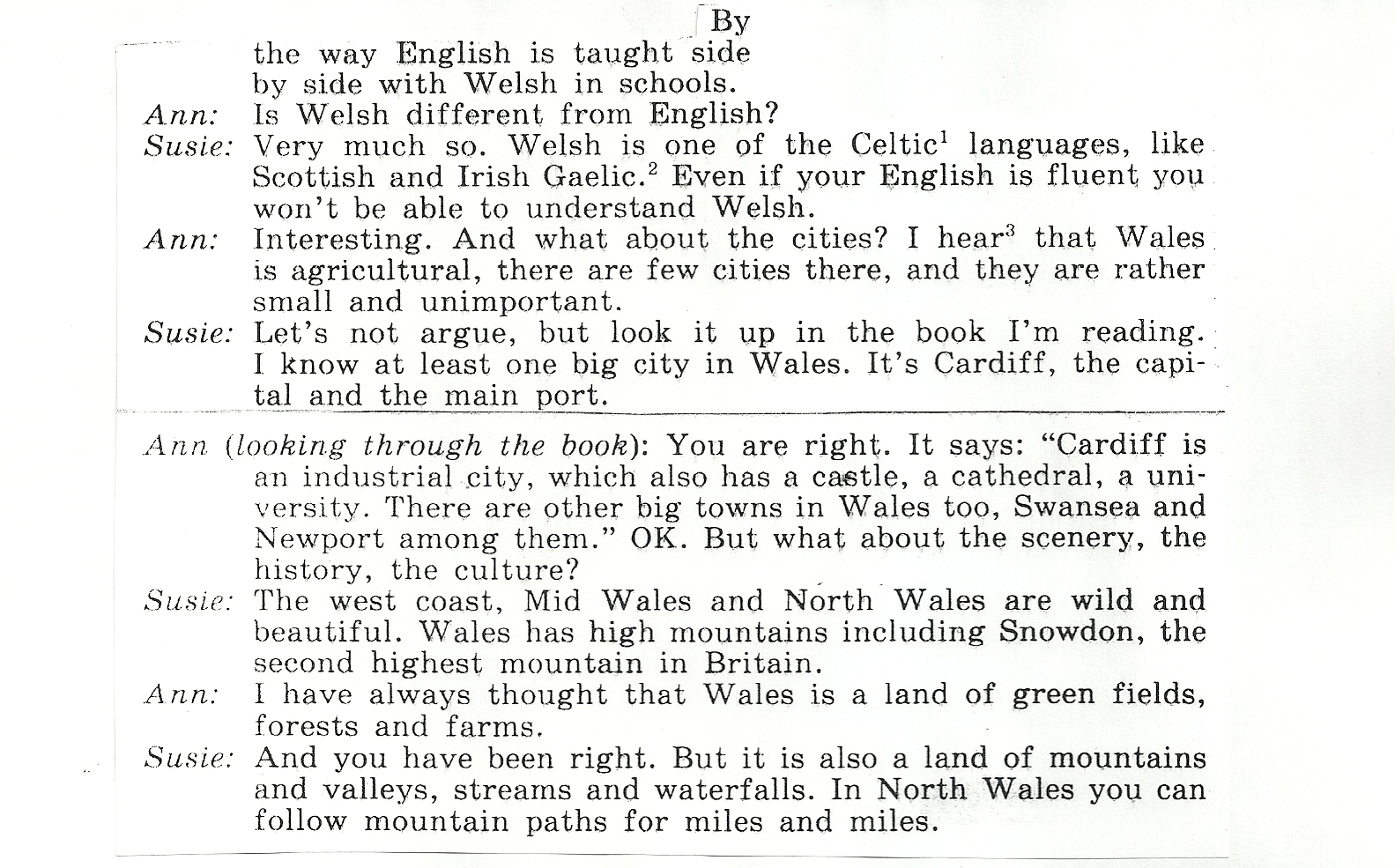
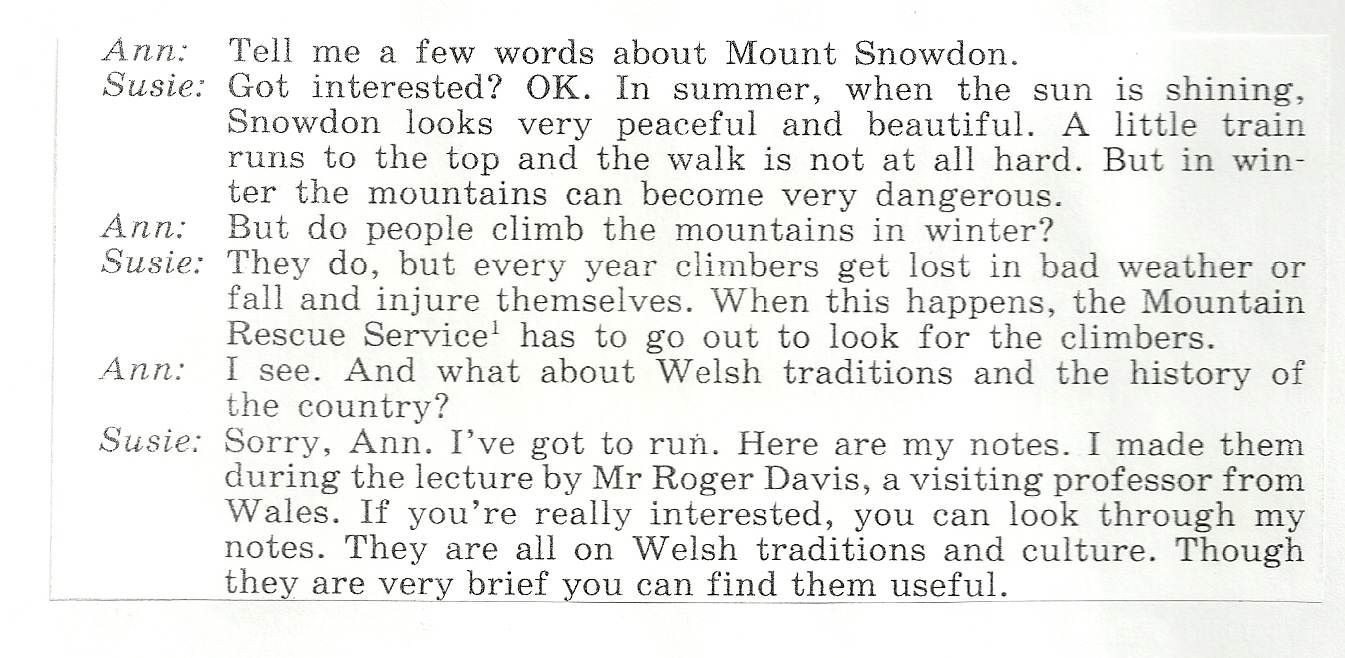
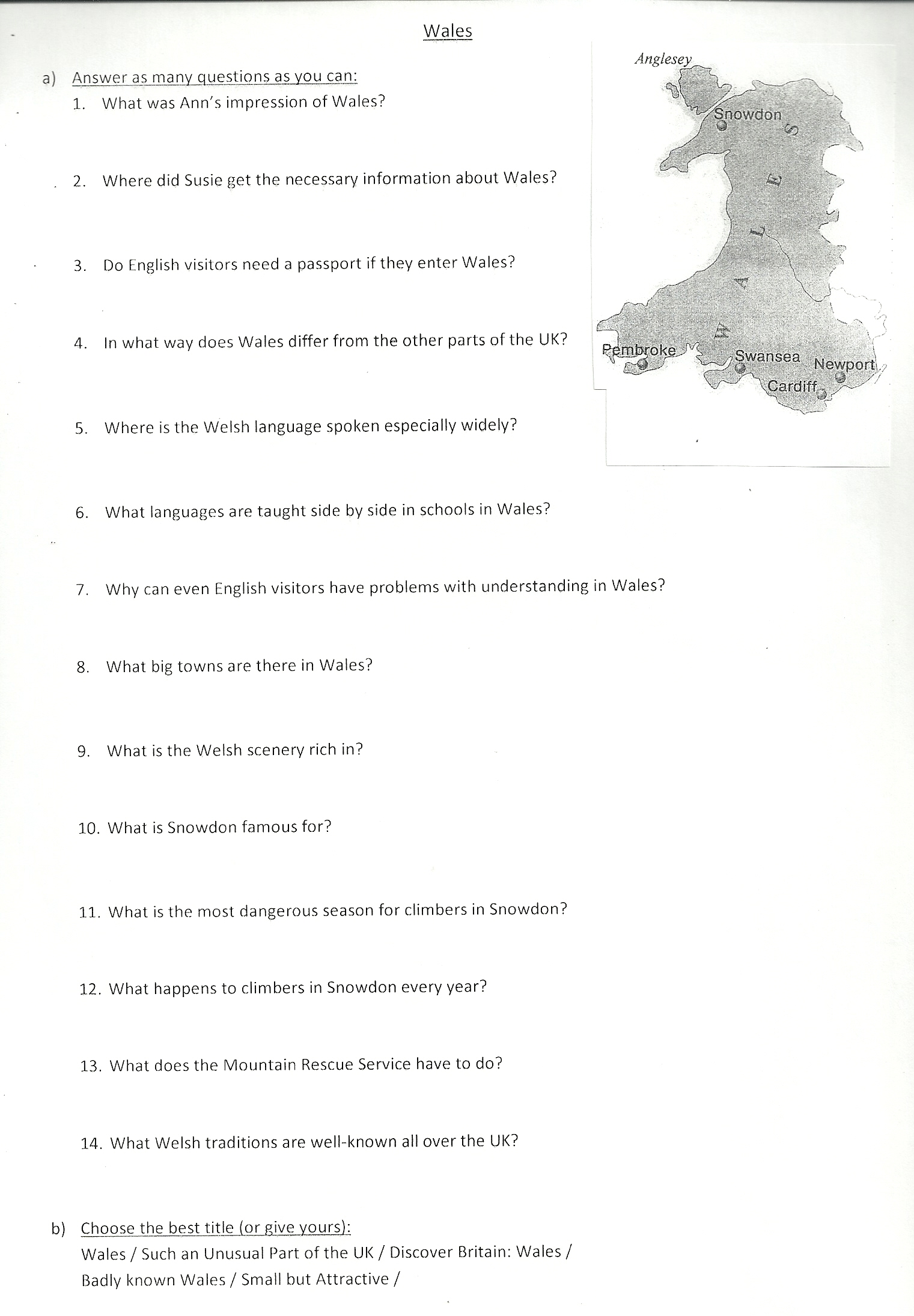
 tourout.ru/file/0dm4xk1krb11/600x/3eos5193wcmp.jpg
tourout.ru/file/0dm4xk1krb11/600x/3eos5193wcmp.jpg
 go.hrw.com/atlas/span_map/wales.gif
go.hrw.com/atlas/span_map/wales.gif
 vader.joemonster.org/upload/qck/10084009601c12bwallpaper2727789.jpg
vader.joemonster.org/upload/qck/10084009601c12bwallpaper2727789.jpg
 globalblackswan.com/sites/default/files/uploads/welsh%20sign.png
globalblackswan.com/sites/default/files/uploads/welsh%20sign.png
 openclipart.org/image/800px/svg_to_png/17787/tobias-Flag-of-Wales-United-Kingdom.png
openclipart.org/image/800px/svg_to_png/17787/tobias-Flag-of-Wales-United-Kingdom.png
 cglearn.it/En_speaking/leek-daffodil-left.gif
cglearn.it/En_speaking/leek-daffodil-left.gif
 images.gwales.com/images/fullsize/9781849340472
images.gwales.com/images/fullsize/9781849340472
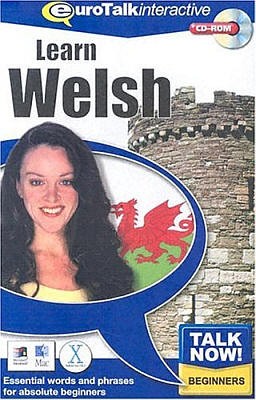 lehmanns.de/media/15012128
lehmanns.de/media/15012128
 upload.wikimedia.org/wikipedia/commons/6/61/Defnyddiwch_eich_Cymraeg_-_Use_your_Welsh_-_geograph.org.uk_-_488577.jpg
upload.wikimedia.org/wikipedia/commons/6/61/Defnyddiwch_eich_Cymraeg_-_Use_your_Welsh_-_geograph.org.uk_-_488577.jpg
A video in which Adam speaks Welsh (a language spoken by 500a000 worldwide) speaks about speaking youtube.com/watch?v=AW3q-fRowrg
 rafmra.com/homepageimages/homepagebadge.gif
rafmra.com/homepageimages/homepagebadge.gif
The Royal Air Force Mountain Rescue Service provides land rescue over the mountain areas of the United Kingdom.
Mountain Rescue's website mountain.rescue.org.uk/
The Battenburg markings used by mountain rescue

images-mediawiki-sites.thefullwiki.org/07/2/9/5/694862787804576.png


